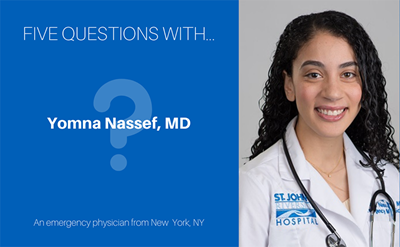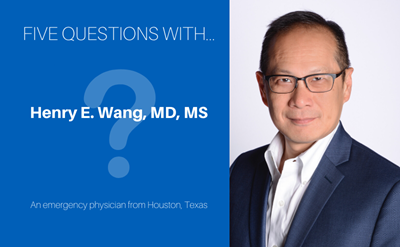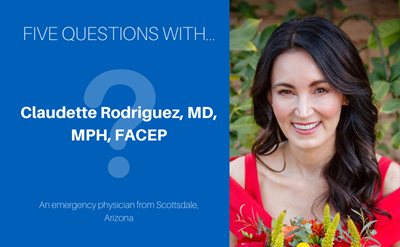Dear Patient:
I’m sorry I had to meet you tonight. I know that just by ending up in my ER, you’ve had a bad day, perhaps even the worst day of your life. Thank you for trusting me to share in that day.
I know that even the shortest wait time can feel too long. Emergency medicine has been successful beyond our founder’s wildest dreams, and we are now often people’s first choice for care. We are understaffed, out of space, and facing more patients every day. We don’t want to make you wait; we’d love to see you the moment you arrive, but some days we just can’t make it happen.
Please excuse me if I seem a little flustered. I just told a young girl that her mom didn’t survive the car accident and held her as she cried. I’m still working to save her dad; when they page my name overhead, that will be the operating room to tell me if they were successful. I may need to step out to take that phone call.
My staff and I are here to take care of you. Sometimes, taking care of you may mean that we don’t give you what you want. I care about you enough to not give you a sandwich before I send you off to the operating room for your appendectomy. I care enough to not give you pain medicine to feed your addiction.
We care about you deeply and I’d like you to know that I try my best to be as smart as I can about the diseases you may have. I listen to podcasts, I go to conferences, I read articles, and I study the things that bring you to see me. If I don’t know what is causing your 10 years of abdominal pain, chances are really good that it’s not going to kill you anytime soon.
You can help me tremendously by knowing a little bit about your health history. Your information is very important to keeping you safe.
If you bring in a list of your medications, you’ll make me smile. If you bring in a nice list of your medical problems, surgeries, allergies, and medications, I might just hug you. You have just jumped to the top of the list of patients who want to actively help me take care of you, and I now have the information I need to do my best work.
Googling your symptoms will rarely do anything other than scare you. Your freckle is unlikely to be cancer. You don’t have acute intermittent porphyria or hemochromatosis.
I like that you want to know more about your health; please ask me about good places to look for medical information that is reliable.
Know that there are many different ways to approach your care, and I’ll do my best to include you in those decisions. I don’t have to agree with your decision, and that’s fine. Do know that I will be your best advocate, and if I’m twisting your arm, it’s because I really believe it’s in your best interests.
You may hear us laughing and joking outside your room. Don’t get me wrong; if you shot yourself with your own nail gun, we may snicker about you, but we’ll do it in your room with you. You may wonder how we can laugh when you’re so sick or hurting; please understand that even though today is a horrible day for you, it’s just another day for us — ER people have the most twisted sense of gallows humor you will ever see. You have to be able to laugh or this job will eat you away inside.
After you leave here tonight, I will worry about you and pray for you. I may even tell my husband a little about you; not your name because I value your privacy, but a little funny anecdote or how you made me smile. Or worry. Or silently curse. Or cry. Sometimes the burden of caring about you gets too heavy to carry alone.
The psychologists call it “compassion fatigue.” After a while, watching people suffer day in and day out, and always giving to them leaves me empty. My ability to care could dry up, and I have to find some way to fill up that well again.
If I ever see you in the grocery store, I will pretend not to know you unless you say something first. Please feel free to keep the progress of your various ailments to yourself when we are in the produce aisle.
I hope we’ve made you feel a little better, or a little less scared, or a little more equipped to deal with the problems that brought you to the ER. When you leave here tonight, please wear your seatbelt and don’t drink and drive. We’ll wait for your business; we’re busy enough tonight without you.
Sincerely,
Your Doctor
Dr. Torree McGowan is an Air Force veteran and practicing emergency physician with St Charles Medical Group in central Oregon.
 American College of Emergency Physicians
American College of Emergency Physicians







